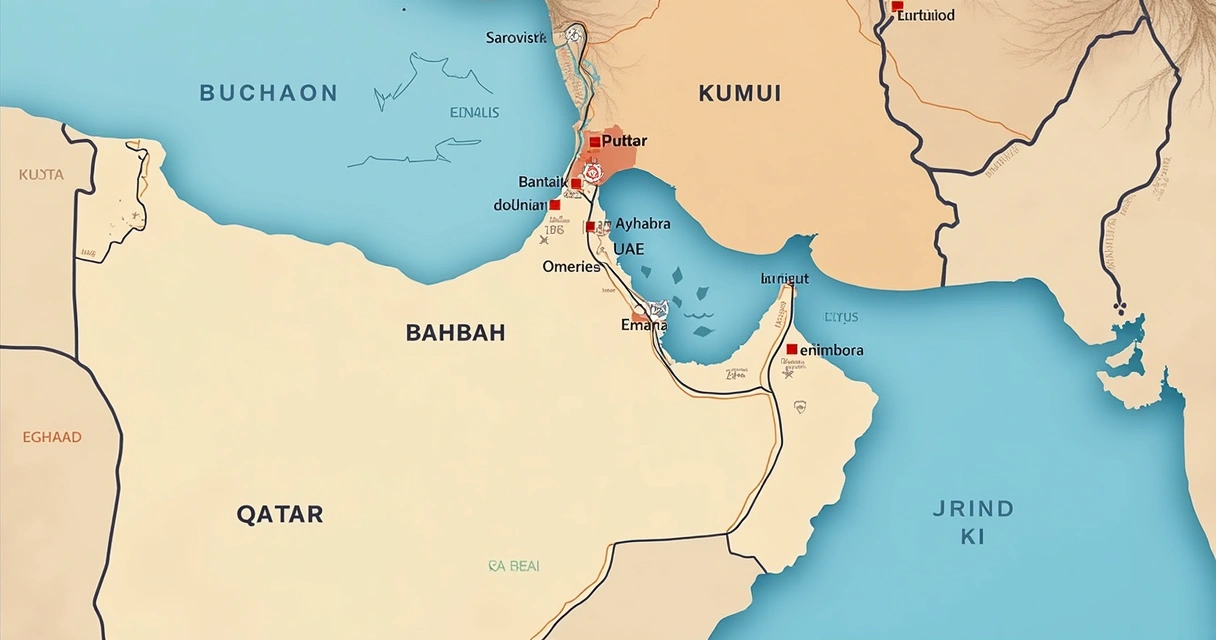Qatar’s rapid growth as a regional business hub can hardly be ignored. With a strategic location, significant investments in infrastructure, and strong ambitions related to global commerce, more international employers are exploring expansion into Qatar. However, the country’s legal and regulatory frameworks can feel unfamiliar, if not daunting, for HR Directors, Partner Management professionals, and C-level executives tasked with cross-border workforce decisions.
So, what do you need to know? This guide, informed by the experts at EWS Limited, aims to give foreign-owned companies and startups a direct, practical overview of working, hiring, and scaling teams in Qatar. If your venture operates across borders and you’re keen on unlocking new opportunities in the Gulf region, understanding the details behind Qatari labor law, with all its local nuances, is a key first move.
The business environment in Qatar stands apart for several reasons. Fast-paced economic progress, major global sporting and cultural events, and a supportive legal infrastructure for certain foreign investments all combine to create a scene that’s both attractive and complex.
Despite these advantages, the landscape of rules, local practices, and day-to-day compliance can change quickly. Global employers must keep up, especially when it comes to operational risks, payroll, contracts, immigration, and more.
Change is fast. Attention to detail is everything.
Launching operations in Qatar usually starts with choosing a legal entity. This step influences your hiring possibilities, payroll processing, contractual obligations and even modes of dispute resolution. The options aren’t overwhelming, but each comes with its own requirements.
Approval from the Ministry of Commerce & Industry is necessary, and the 100% foreign ownership rule applies mainly to industries such as tech, education, health, tourism, and agriculture, as detailed in Qatar’s investment regulations. Certain sectors—banking, insurance, or commercial agencies—face stricter local controls and require individual exemptions.
 Looking for structure variety?
Looking for structure variety?If you are interested in fast and simple coverage without a local entity, global employers can benefit from employer of record services. EWS provides a compliant, centralised way to enter the market in Qatar, as well as neighbouring countries. Learn more at our Employer of Record Qatar page.
Recruitment, contracts and onboarding are subject to Qatari law—even for globally mobile workforces. It’s not unusual for foreign companies to encounter some surprises when crafting hiring practices that meet local thresholds. Here are a few practical guidelines to keep in mind:
Recruitment is more than just paperwork, though. There are required processes for applying for work permits, handling visa sponsorship (the famous ‘kafala’ system, now modernised), and fulfilling wage protection standards. Hiring can move quite fast if everything is coordinated well, but delays are possible if documents or procedures are missing.
As your workforce in Qatar grows, consider reviewing your compliance processes or leaning on EWS’s local expertise to ensure smooth onboarding and government submissions, especially if you’re hiring remotely or using non-standard contract styles.
Over the last several years, Qatar has taken measures to standardize and protect basic compensation and benefits, particularly for migrant and expatriate workers. This creates clarity for international companies regarding the minimum package they must offer—both as a legal baseline and to attract global talent.
It’s also worth remembering that social insurance, like pension and retirement benefits, generally only apply to Qatari nationals, not expatriates. However, some foreign companies offer additional private benefits or offshore savings plans to remain competitive when attracting talent.
Clarity in compensation is a winning detail in recruitment.
While working patterns in Qatar can feel familiar, there are notable regional characteristics to remember—especially for non-Qatari management.
 Being aware of diverse cultural practices, including fasting periods, is not only considerate, but may also help in building goodwill with local staff.
Being aware of diverse cultural practices, including fasting periods, is not only considerate, but may also help in building goodwill with local staff.
The state regulates all foreign employment closely. Understanding the sequence and requirements for visas and work permits is central for HR Directors and global mobility managers.
Any changes—contract amendments, role changes, or transfers to another company—must be recorded with the authorities to remain compliant.
Precision in paperwork keeps everyone moving.
Terminating a contract, whether for redundancy, resignation, or disciplinary reasons, must follow clear Qatari procedures.
The Ministry of Labour provides a dispute resolution process for unresolved employment disagreements, which all parties are encouraged to use before heading to the courts (Qatar’s Ministry of Labour).
Staying on the right side of the law is both a daily practice and a periodic obligation—even more so for global companies handling multi-jurisdiction payroll, contracts, and benefits.
Leveraging payroll outsourcing, such as the service EWS provides, can streamline local and multi-country payroll, especially with multi-currency requirements and fast-changing staff rosters.
 Penalties for non-compliance
Penalties for non-complianceNon-compliance carries significant legal and operational risks, including:
Multinational HR directors and managers should treat compliance with Qatari labor law as a process deserving both attention and ongoing investment. Regular consultation with local experts—such as those at EWS Limited—will help reduce exposure and keep your workforce steady as you scale.
Protect your company by taking compliance seriously.
Labor law in Qatar has evolved rapidly, especially after 2020. Some points of progress, notable for global companies, include:
Such reforms, frequently updated at Qatar’s official government briefings, are designed to modernise the talent market and attract skilled professionals from around the world.
Foreign companies in Qatar often operate in parallel with other Gulf markets. The labor law frameworks of Kuwait, the United Arab Emirates, Saudi Arabia, and Oman share many similarities with Qatar, yet subtle differences exist regarding ownership, local sponsorship, and workforce rules. Resources like EWS Limited’s Kuwait employer of record, UAE employer of record, Saudi Arabia employer of record, and Oman employer of record solutions can provide the bridge for companies seeking regional consistency—and peace of mind with compliance.
 Conclusion: the power of local knowledge
Conclusion: the power of local knowledgeQatar invites global companies to grow, but its labor law frameworks reward those who prepare carefully and monitor every process. As ambitious as the market can be, the legal framework is focused on clear principles and regular reform. If you plan to hire, relocate, or scale teams in Qatar, grounding your practices in real compliance is far more than a legal exercise—it’s the key to stability and trust on the ground.
At EWS Limited, our commitment is to make your expansion as frictionless as possible. Whether it’s payroll, workforce mobility, compliance, or full entity setup, our team is ready to guide you through each step. Curious about our services or need help with Qatar labor law and cross-border hiring? Reach out and discover how we connect the dots for your company’s growth and international journey.
Some of the main rules include the need for a written contract, minimum wage for all employees, clear limits on working hours (48 per week, 36 during Ramadan), and requirements around paid leave, overtime, and end-of-service gratuity. There’s also a legal ban on keeping workers’ passports, and recent reforms allow job changes without employer permission (overview of Labor Law).
Companies may establish a local entity (like an LLC), partner with a Qatari sponsor, or use employer of record services when available. All staff must have a valid employment contract and work permit, and the hiring process involves approvals from the Ministry of Labour, proper visa procedures, and adhering to quota restrictions. EWS Limited can support firms with fast, compliant onboarding for both local hires and expatriate talent.
Penalties include fines for payroll errors, suspension of work permits, legal claims from former employees, and in serious cases, criminal prosecution. Government audits and sector reforms make up-to-date compliance an ongoing commitment for global employers.
Application fees vary depending on role, duration, and nationality, but typical costs range from about QAR 200–500 ($55–$140) per permit, plus medical screening and administration costs. Companies should check the latest guidance from Qatar’s Ministry of Labour for the most accurate fee structures.
Many foreign companies find Qatar an attractive platform—its business environment, tax structure, and fast-growing economy appeal to technology, education, and service firms. Key factors include competitive company setup costs, streamlined processes in certain sectors, and access to one of the world’s most dynamic regions. Still, careful preparation and ongoing compliance with local labor laws are always necessary for long-term success.
How to Complete IRS W-8 BEN for Foreign Contractors: A Simple Guide
Exempt vs. Non-Exempt Employees: 2026 Guide for Employers
Work From Home Stipends: What They Cover and How They Work
Small Business Benefits: 8 Strategies for Rising Costs in 2026
Payroll Tax Forms in 2026: A Simple Guide for Growing Businesses
How to Build Strong Company Values That Shape Workplace Culture
EU Pay Transparency Directive 2026: A Step-by-Step Compliance Guide
AI Data Center Hotspots: Skilled Trade Wages, Growth, and Trends
Ad Hoc IT vs MSPs vs Platforms: Choosing the Right IT Approach
Misclassifying Contractors vs Employees: Risks, Penalties, Solutions
Hiring in Morocco: North Africa’s Emerging Tech Talent Market
Hiring in Portugal: What You Need to Know in 2026
Global Mobility and EOR: How to Align HR and Immigration in 2026
Beyond China: Where Asian Companies Are Hiring in 2026
How Recruiters Use EOR to Win Big in Fintech Placements
Europe’s Freelancer Laws in 2026: When to Switch to EOR
Hiring in the Philippines: 2026 Guide for Global Employers
How Recruiters Use EOR to Unlock German Healthcare Placements
Hiring in Colombia: 2026 Compliance Guide for LatAm Expansion
Hiring in Türkiye (Turkey): 2026 Guide for International Teams
How Recruiters Use EOR to Handle Rapid Global Onboarding
Top 5 EOR Red Flags to Avoid in 2026
EOR vs Entity Setup in 2026: What Startups Need to Know
10 Things You Didn’t Know Your EOR Could Do
When to Use a Payroll Provider vs Full EOR in Global Hiring
January Compliance Watch: What’s Changing in APAC Labor Laws
Hiring in Turkey in 2026: Costs, Contracts, and EOR Options
Contractor or Employee? Compliance Risks to Watch in 2026
What’s Changing in European Payroll Compliance in 2026?
How to Use EOR to Win More Government or Public Sector RFPs
Hiring in Colombia: Fast-Growing Talent Pool, Low Total Cost
Remote Tech Jobs Surge 33% in Ireland: Skills You Need Now
Remote Work in APAC: 7 Data-Driven Trends for 2026 Expansion
Remote Payroll Headaches: 7 Mistakes HR Teams Make
Freelancer vs EOR in 2026: Cost, Risk, and Speed Compared
How Employee Experience Drives Retention and Business Growth
How HR Can Reduce Burnout Amid AI, Budget Cuts, and Change
Employment Contracts: What HR and Global Managers Must Know
PEO Explained: How It Simplifies Global Workforce Management
Global Mobility: A Complete Guide for HR and Global Managers
Remote Workforce: A Complete Guide to Managing Global Teams
Workforce Planning: A Step-by-Step Guide to Strategic Hiring
How Recruiters Use EOR to Increase Revenue Per Client
The Secret to Winning Global RFPs? A Strong EOR Partner
Top 7 Hiring Trends Shaping Global Teams in 2026
Hiring in Türkiye: Key Labor Laws and Employer Risks in 2026
GCC Hiring Compliance Update: What’s Changing in 2026
How to Hire in Turkey in 2026: A Strategic EOR Guide
Why modern recruitment agencies outsource compliance to EOR partners
How adding an EOR partner helps agencies win more RFPs
EOR Opportunities in Poland: Why It’s Europe’s Talent Powerhouse
Cross-Border Hiring Trends for 2026: Insights for Global Recruiters
How to Build a Scalable Payroll Strategy Across MENA
Contractor vs Employee in Germany: What’s the Risk in 2026?
“Place globally, bill locally” — the new recruiter cheat code
Top 5 Compliance Mistakes When Expanding to the UAE
Why EOR is Key to Winning Public Sector Tenders in Europe
Growth formula for agencies using EOR to expand key accounts
How EOR helps recruiters stay ahead of fast-changing GCC compliance
Employer of Record in Mandarin: What is 境外雇主服务?
How to Use an EOR for Temporary Projects (中国公司如何为短期海外项目使用EOR服务)
Why “Go Global” Must Include Compliance (“走出去”战略中的合规盲点)
中资企业如何选择欧洲EOR供应商?(How to Choose the Right EOR Partner in Europe)
与当地政府打交道:中国公司需要了解的合规礼仪 (Cultural Compliance for Chinese Firms)
中国公司海外人力结构案例分析:制造业、科技与能源 (HR Case Studies: Chinese Firms Abroad)
How Guanxi Influences Hiring in the Middle East (关系在中东招聘中的作用)
Top 5 Risks When Hiring in the Gulf (中国企业在海湾地区招聘的五大风险)
Managing Compliance in Multi-country Projects (中国企业多国项目的人力合规管理)
The $100K Visa Shock: Why Global Hiring Just Replaced the H-1B
How to Set Up Payroll For Hpc And Ai Teams
Contracting Machine Learning Talent Abroad
Everything on Hiring Foreign Phds In German Tech Labs
Cross-Border Ip Protection In R&D Teams
How To Classify Freelancers In Tech Innovation
How Eor Helps Tech Firms Legally Hire In Germany
Dual Contract Structure For International Researchers
Data Protection Obligations For Remote Tech Staff
Germany Research Visa Vs Skilled Worker Visa
Everything on Nis2 Directive Compliance For Eu Tech Workers
Global Mobility For Deep Tech Startups In Germany
Payroll For EU Embedded Systems Developers
Relocation Support For Semiconductor Experts on EU
The Absolute Way to Hire Ai Engineers In Germany
How to Manage Benefits For German Tech Hires
Germany’S Blue Card Process For Engineers
Everything on Germany R&D Employment Compliance
Remote Hiring Of Cybersecurity Analysts In Eu
Visa Pathways For Quantum Computing Researchers
Onboarding Robotics Specialists Across EU Borders
Workforce Planning In Ai-Driven Logistics And Infrastructure
Visa Processing For High-Tech Infrastructure Staff
Managing Global Mobility In Sustainable City Projects
Cross-Border Team Management In Saudi Data Centers
Hiring Skilled Labor For Green Hydrogen Facilities
Digital Twin Technology Hiring Trends In Saudi Construction
Employer Obligations In Public-Private Energy Initiatives
Navigating Local Labor Laws For Solar Energy Teams
Talent Acquisition In The Saudi Mining Sector
Eor Solutions For Ai Engineers In Mega Projects
Regulatory Challenges In Hiring For Giga Construction Projects
Contractor Compliance In Smart City Developments
Classification Of Engineering Consultants In Vision 2030 Projects
How To Manage Workforce For Neom-Based Tech Projects
Eor For Multinational Mining Firms Operating In Saudi Arabia
Employer Of Record For Wind Energy Projects In The Gulf
Relocation Logistics For International Clean Energy Experts
Hiring Strategies For Large-Scale Construction Projects In Ksa
How To Onboard Digital Infrastructure Experts In Saudi Arabia
Payroll Setup For Renewable Energy Workers In Ksa
Strategic Relocation To Riyadh Or Doha: A Guide for Global Employers
Work Visa Processing In Qatar And Saudi Arabia
Qatar Nationalization Policy And Foreign Firms
Cost Of Setting Up A Business In Qatar: A Guide for Global Employers
Saudi Labor Court And Dispute Handling for Global Employers
Cross-Border Payroll For Ksa And Qatar Teams
End Of Service Benefits Saudi Arabia: A Guide for Global Employers
How To Manage Expat Benefits In Qatar for Global Employers
Expanding Into New Markets: Vendor Risks You Should Flag
A Guide to Cross-Border Equity Vesting for Tech Startups
Employer Branding for Multinational Teams: What Works Now
What Global C-Level Leaders Miss About Digital Nomad Visas
Succession Planning for Distributed Teams: A Practical Guide
Relocation Budgeting For Global Tech Firms
Latam Hiring Strategy: What Global Companies Should Know
Risk Of Permanent Establishment Explained
Managing Intellectual Property In Remote Work
Benefits Benchmarking Globally for Global Companies
How to Benchmark Compensation Across 100+ Countries in 2025
Checklist: Preparing HRIS for Fast International Scalability
Biometric Data in Global Payroll: Legal Boundaries Explained
8 Regulatory Updates Impacting Global HR in 2025
What are Hidden Costs of In-House Payroll?
Why Companies are Thinking Differently About Relocation
Is Your Global Mobility Program Outgrowing Spreadsheets?
Remote Work Visas: A Growing Trend in Global Mobility
Hiring in Europe Post-Brexit: What You Need to Know
Tips for Managing Multi-Time Zone Teams Successfully
Relocation Packages: What Top Talent Expects in 2025
Banking and Payroll Challenges in Saudi Arabia Markets
The Legal Risks of Misclassifying Global Workers
Why Scalability Should Drive Your Global HR Strategy
How EWS Streamlines Global Mobility for Tech Talent
Lithuania – Employer of Record
Kosovo – Employer of Record
Finland – Employer of Record
Namibia – Employer of Record
Nepal – Employer of Record
Spain – Employer of Record
Latvia – Employer of Record
Ireland – Employer of Record
Cyprus – Employer of Record
Czech Republic – Employer of Record
Italy – Employer of Record
Indonesia – Employer of Record
South Africa – Employer of Record
Tunisia – Employer of Record
Bosnia – Employer of Record
Moldova – Employer of Record
Five Tips For Improving Employee Engagement
Netherlands – Employer of Record
Germany – Employer of Record
France – Employer of Record
Portugal – Employer of Record
Bulgaria – Employer of Record
Austria – Employer of Record
Hungary – Employer of Record
Slovenia – Employer of Record
INCLUSIVITY IN THE TEAM MAKES EVERYONE WIN
Thailand – Employer of Record
Sri Lanka – Employer of Record
The Significance of an Employer of Record
Greece – Employer of Record
Mexico – Employer of Record
4 Reasons to Outsource Your Payroll
Five Recruitment Trends 2023
Malaysia – Employer of Record
Skill-Based Hiring and Benefits
Malta – Employer of Record
How To Practice Inclusive Recruitment
Israel – Employer of Record
Macedonia – Employer of Record
Jordan – Employer of Record
Macau – Employer of Record
Peru – Employer of Record
The Importance of Employer Branding
Bahrain – Employer of Record
South Korea – Employer of Record
Recruiting during a recession
Philippines – Employer of Record
USA – Employer of Record
Japan – Employer of Record
How To Setup A Business in 2023
Norway – Employer of Record
Managing Overseas Projects In 2023
Reason Of Expanding Your Workforce Globally
Croatia – Employer of Record
Colombia – Employer of Record
5 Ways To Speed Up Your Hiring Process
Egypt – Employer of Record
3 Ways To Streamline An Interview Process
Russia – Employer of Record
Saudi Arabia – Employer of Record
Hong Kong – Employer of Record
An Effective Hybrid Work Model
Turkey – Employer of Record
UAE – Employer of Record
Pakistan – Employer of Record
7 Things to Consider Before Accepting a Job
Kazakhstan – Employer of Record
3 Reasons to Encourage Employees to Generate Employer Brand Content
Denmark – Employer of Record
Sweden – Employer of Record
Bangladesh – Employer of Record
Kuwait – Employer of Record
How To Hire In The Age Of Hybrid Working
Australia – Employer of Record
Oman – Employer of Record
Qatar – Employer of Record
Ukraine – Employer of Record
Diversity – A Vital Hiring Strategy
Owning Every Moment of Your Hiring Experience
Serbia – Employer of Record
Maldives – Employer of Record
India – Employer of Record
Argentina – Employer of Record
Uzbekistan – Employer of Record
Belarus – Employer of Record
Brazil – Employer of Record
Chile – Employer of Record
Armenia – Employer of Record
3 Steps To Company Formation In The UK & Abroad
Romania – Employer of Record
Canada – Employer of Record
Morocco – Employer of Record